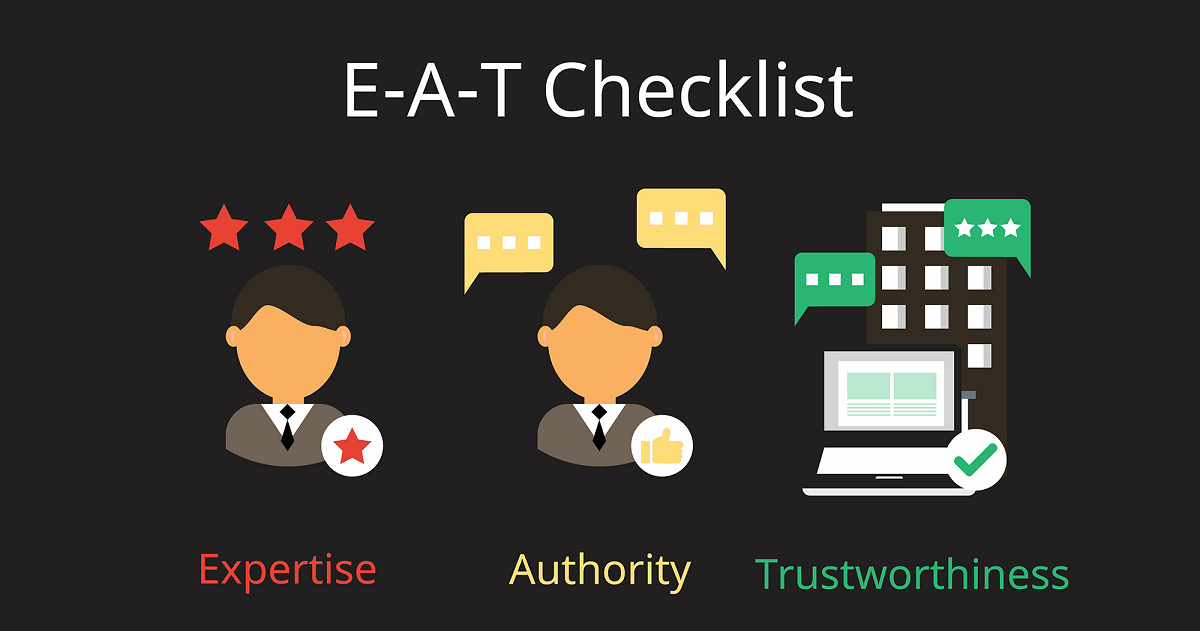BLOG
SEO For Law Firms: Strategies For Legal Websites

In the vast digital landscape, where competition for online visibility is fierce, law firms face unique challenges in establishing their presence and attracting potential clients. In this dynamic environment, mastering Search Engine Optimization (SEO) emerges as a crucial strategy for legal websites to rise above the noise and connect with their target audience effectively. Welcome to our comprehensive guide on SEO for law firms, where we delve into essential strategies tailored specifically for the legal industry.
In today's digital era, a strong online presence is no longer just an option; it's a necessity for businesses across all sectors. However, for law firms navigating the intricacies of SEO, there are specific considerations and nuances that must be addressed to ensure success. Understanding these nuances and implementing targeted SEO strategies can significantly impact a law firm's visibility, credibility, and ultimately, its bottom line.
In this introductory segment, we'll explore the fundamental importance of SEO for law firms and provide an overview of what to expect from our comprehensive guide. We'll discuss why SEO is not merely a technical aspect of digital marketing but a strategic imperative for law firms looking to thrive in today's competitive landscape. Additionally, we'll outline the key areas we'll be covering in detail throughout the blog, from understanding the basics of SEO to implementing advanced strategies tailored to the legal industry.
Whether you're a solo practitioner or a multi-partner law firm, embracing SEO can be a game-changer in your quest to attract clients, establish authority in your practice areas, and achieve sustainable growth. So, let's embark on this journey together as we unlock the power of SEO for law firms and pave the way for your digital success.
Understanding The Basics Of SEO
Understanding the basics of SEO is essential for anyone looking to establish a strong online presence, including law firms seeking to attract more clients through their websites. SEO, or Search Engine Optimization, is the practice of optimizing your website to improve its visibility and ranking on search engine results pages (SERPs). At its core, SEO revolves around making your website more appealing to search engines like Google, Bing, and Yahoo, thereby increasing the likelihood of your site being found by users searching for legal services.
Key components of SEO include on-page optimization, off-page optimization, and technical optimization. On-page optimization involves optimizing individual web pages to rank higher and earn more relevant traffic in search engines. This includes optimizing content, meta tags, and HTML source code. Off-page optimization, on the other hand, focuses on building the website's authority and reputation through strategies such as link building, social media marketing, and local citations. Lastly, technical optimization deals with the technical aspects of a website, such as site speed, mobile-friendliness, and site structure, to ensure it is easily crawlable and indexable by search engines.
By understanding these basics, law firms can strategically implement SEO tactics to improve their website's visibility and attract more potential clients. Effective keyword research, content creation, on-page optimization, and technical optimization are foundational elements that can significantly impact a law firm's online success. Moreover, staying updated with the latest SEO trends and algorithms is crucial for adapting and refining SEO strategies over time. Ultimately, a solid understanding of SEO basics empowers law firms to compete effectively in the digital landscape and connect with clients who are actively seeking legal services online.
Keyword Research For Legal Websites
In the competitive landscape of the legal industry, effective keyword research is paramount for driving targeted traffic to your website and attracting potential clients. Understanding how people search for legal services and what terms they use can significantly improve your SEO strategy. Let's delve into the essential aspects of keyword research tailored for law firms:
A. Identifying Relevant Keywords
- Primary Legal Keywords: Start by brainstorming primary keywords that directly relate to your legal services. These could include terms like "personal injury lawyer," "divorce attorney," or "estate planning law firm."
- Long-Tail Keywords: Explore long-tail variations of primary keywords that are more specific and capture user intent with higher precision. For instance, "personal injury lawyer in [city]," "divorce attorney for military spouses," or "estate planning for blended families."
B. Long-Tail vs. Short-Tail Keywords
- Short-Tail Keywords: These are concise and broad terms that typically have higher search volumes but also higher competition. Short-tail keywords like "lawyer" or "attorney" may attract generic traffic but might not convert as well.
- Long-Tail Keywords: Long-tail keywords are more specific and targeted phrases that often have lower search volumes but higher conversion rates. They reflect user intent more accurately and can help capture niche markets.
C. Tools for Keyword Research
- Google Keyword Planner: Utilize Google's free tool to discover relevant keywords, assess search volumes, and identify potential keyword variations.
- Keyword Research Tools: Explore third-party keyword research tools like SEMrush, Ahrefs, or Moz Keyword Explorer for comprehensive keyword analysis, competitive research, and trend insights.
D. Keyword Mapping Strategies
- Organize Keywords by Practice Areas: Group keywords based on different practice areas or legal services offered by your firm. This helps tailor your content and SEO efforts to specific audience needs.
- Map Keywords to Website Structure: Align keywords with different sections of your website such as service pages, blog categories, or resource sections. This ensures that each page targets relevant keywords and serves specific user intents.
- Prioritize Keywords Based on Intent and Difficulty: Prioritize keywords based on their search intent (informational, navigational, transactional) and assess the competition level to determine the feasibility of ranking for each keyword.
By conducting thorough keyword research and strategically incorporating targeted keywords into your website content, you can enhance your law firm's visibility in search engine results and attract qualified leads seeking legal services.
Technical SEO Best Practices
- Website Speed and Performance Optimization:
- Ensure fast loading times for all pages, especially on mobile devices.
- Compress images and optimize code to reduce page load times.
- Utilize content delivery networks (CDNs) to distribute content geographically and improve loading speeds.
- Minimize server response times by using reliable hosting services and optimizing server configurations.
- Mobile-Friendliness and Responsive Design:
- Ensure your website is optimized for mobile devices with responsive design techniques.
- Test your website's mobile-friendliness using tools like Google's Mobile-Friendly Test.
- Prioritize user experience on mobile devices by optimizing navigation, buttons, and forms for touchscreen interactions.
- Implement Accelerated Mobile Pages (AMP) for faster loading times on mobile devices.
- Schema Markup for Legal Websites:
- Utilize schema markup to provide search engines with additional context about your law firm's website.
- Implement schema markup for local business information, such as NAP (Name, Address, Phone Number) details.
- Use schema markup for legal services, including practice areas, attorney profiles, and reviews.
- Validate your schema markup using Google's Structured Data Testing Tool to ensure accuracy and effectiveness.
- URL Canonicalization and Redirects:
- Set preferred URLs using canonical tags to consolidate duplicate content and prevent issues with duplicate content penalties.
- Implement 301 redirects for any outdated or broken URLs to ensure a seamless user experience and maintain link equity.
- Regularly audit and update redirects to ensure they remain relevant and functional, especially after website migrations or restructuring.
By focusing on these Technical SEO Best Practices, law firms can enhance their website's visibility, user experience, and overall performance in search engine results.
Monitoring And Measuring SEO Success
A. Key Performance Indicators (KPIs) for Legal Websites:
- Organic Search Traffic: Measure the volume of traffic coming to your website from search engines like Google, Bing, and Yahoo.
- Keyword Rankings: Track the positions of your targeted keywords in search engine results pages (SERPs) over time.
- Click-Through Rate (CTR): Monitor the percentage of users who click on your website's listing in search results compared to the total number of impressions.
- Conversion Rate: Measure the percentage of website visitors who complete a desired action, such as filling out a contact form, subscribing to a newsletter, or requesting a consultation.
- Bounce Rate: Monitor the percentage of visitors who navigate away from your website after viewing only one page, which can indicate the relevance and engagement of your content.
- Average Session Duration: Track the average amount of time users spend on your website per visit, indicating the level of engagement and interest in your content.
- Backlink Profile: Evaluate the quantity and quality of backlinks pointing to your website, as well as the diversity of referring domains.
B. Tools for SEO Tracking and Analysis:
- Google Analytics: Utilize this free web analytics tool to track website traffic, user behavior, and conversions, and to gain insights into the effectiveness of your SEO efforts.
- Google Search Console: Monitor your website's performance in Google search results, identify indexing issues, and receive alerts about potential SEO issues.
- SEMrush: Use this comprehensive SEO toolkit to conduct keyword research, track keyword rankings, analyze backlinks, and audit your website's SEO health.
- Moz Pro: Access a suite of SEO tools, including keyword research, rank tracking, site audits, and backlink analysis, to optimize your website for search engines.
- Ahrefs: Utilize this powerful SEO toolset to analyze competitor websites, track keyword rankings, audit your website's backlink profile, and discover new link-building opportunities.
- SE Ranking: Monitor keyword rankings, analyze website traffic, conduct website audits, and track social media performance, all in one platform.
C. Periodic SEO Audits and Adjustments:
- Conduct Regular Audits: Perform comprehensive audits of your website's SEO health, including on-page elements, technical issues, and backlink profile, on a quarterly or semi-annual basis.
- Analyze Performance Data: Review the data collected from SEO tools and web analytics platforms to identify trends, areas for improvement, and new opportunities.
- Implement Adjustments: Based on the findings from audits and performance analysis, make necessary adjustments to your SEO strategies, such as updating content, optimizing metadata, or acquiring new backlinks.
- Monitor Progress: Continuously monitor the impact of adjustments on your website's SEO performance and make further refinements as needed to achieve your goals.
In conclusion, mastering SEO for law firms is not just about ranking higher in search engine results; it's about ensuring that your legal website is visible to potential clients who are actively seeking legal services. By implementing the strategies outlined in this blog, you can enhance your website's visibility, attract more organic traffic, and ultimately grow your client base.
From conducting thorough keyword research to optimizing on-page elements, from building a robust backlink profile to monitoring key performance indicators, every aspect of your SEO strategy plays a crucial role in your online success as a law firm.
Remember, SEO is not a one-time effort but an ongoing process that requires dedication, monitoring, and adaptation to stay ahead in the competitive legal landscape. By staying informed about the latest SEO trends and continuously refining your strategies, you can ensure that your law firm maintains its visibility and relevance in the digital realm.
Ready to take your law firm's online presence to the next level? Don't hesitate to reach out to our team of SEO experts for personalized guidance and support. Whether you need assistance with keyword research, content optimization, technical SEO, or link building, we're here to help you achieve your goals.
Contact us today to schedule a consultation and discover how our tailored SEO solutions can drive meaningful results for your legal website. Let's work together to elevate your online visibility, attract more qualified leads, and position your law firm for long-term success in the digital age.











